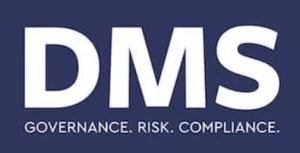Fifty-three jurisdictions have agreed to automatic exchange of tax information beginning in 2017, under the OECD's Common Reporting Standard. Over 40 others have committed to exchange information by 2018. Another wave of global tax information is about to take place, and financial institutions everywhere are in a race to prepare themselves to comply with reporting requirements under CRS.
The first reporting cycle for the US Foreign Account Tax Compliance Act (FATCA) was a learning curve for all participants throughout 2015. While governments had to implement systems and regulations to facilitate the reporting in Model 1 jurisdictions, Reporting Financial Institutions (RFIs) had to perform due diligence procedures on their investor base to identify US Reportable Accounts and report on them, if they were deemed to be reportable. In many jurisdictions, new systems were introduced that RFIs had to use in order to submit these FATCA reports. Implementation of these systems proved challenging in some cases, resulting in delays to the reporting deadlines.
Having survived the first round of FATCA reporting, Financial Institutions across the globe must now prepare themselves for another tax reporting regime, the OECD's Common Reporting Standard (CRS).
The OECD developed a Standard for the automatic exchange of financial information in tax matters on a global level to increase tax transparency, prevent offshore tax evasion and maintain the integrity of tax systems. It is FATCA on a global scale. CRS builds on the concepts of FATCA, in particular the Model 1 intergovernmental agreement (IGA), and imposes obligations on Financial Institutions to undertake due diligence and report account holders. Participating jurisdictions – i.e., countries that have signed a Multilateral Competent Agreement with the OECD – need to implement CRS into local law and therefore, as with US FATCA, financial institutions in these jurisdictions are required to comply with local law, irrespective of their investor base or assets composition.
What Does CRS Require Of Financial Institutions?
The scope of CRS is much more far reaching than FATCA and requires Financial Institutions in participating jurisdictions to implement due diligence and onboarding procedures in order to identify the tax residency of account holders and report those if required.
Under CRS, Financial Institutions must report to their local tax authorities, which will share the information with tax authorities in partner jurisdictions. RFIs can submit reports using their Global Intermediary Identification Number (GIIN) or the Tax Identification Number (TIN) of their jurisdiction. Unlike FATCA, no additional registration is required.
CRS vs. FATCA – Differences In Approach
There are other significant differences between CRS and FATCA, either due to the removal of US specifications, or because certain approaches are not suitable in a multilateral context.
CRS is based on tax residence, while US FATCA is based on the broad concept of "Specified US Persons" that includes citizenship and residency. For CRS purposes, a self-certification should be obtained to establish the tax residency of an investor.
While there is no concept of withholding under CRS, local authorities will be required to implement penalties and mechanisms in order to prevent circumvention of the requirements. They will also require RFIs to keep records of the steps undertaken to comply with CRS and to permit effective enforcement of the obligations.
Participating Jurisdictions
As of October 29, 2015, 53 countries have signed the Multilateral Competent Authority Agreement to exchange information for CRS purposes by 2017, for the first time. These countries, the "early adopters", which include the Cayman Islands, Ireland and Luxembourg, will be required to capture additional investor information when opening a new account for investors starting from January 1, 2016.
CRS also provides for a phased approach with respect to completion of due diligence. The due diligence procedures for identifying high-value pre-existing individual accounts should be completed by December 31, 2016, and for low-value pre-existing individual accounts and entity accounts by December 31, 2017. Pre-existing accounts are those accounts that are maintained by the Reportable Financial Institution as of December 31, 2015.
Additional countries committed to implement CRS to exchange information for the first time by 2018 need to implement the new onboarding requirements for new investors by January 1, 2017.
Some jurisdictions have already adopted the so-called "wider approach" option under CRS, which allows RFIs to collect and retain the information, ready to report, on all investors, rather than just residents of those jurisdictions with which the implementing jurisdiction has concluded a Competent Authority Agreement. This could significantly reduce costs for financial institutions, because they would not need to perform additional due diligence procedures to identify their account holders each time a jurisdiction enters into a new automatic exchange relationship.
CRS includes a so-called "look-through" provision, which requires RFIs to treat investment entities in non-partner jurisdictions as Passive Non-Financial Entities for CRS purposes and report the Controlling Persons of such entities that are deemed Reportable Persons. The term "Controlling Persons" includes a natural person that holds directly or indirectly more than 25 percent of the shares or voting rights of an entity as a beneficial owner. If no such person exists, then any natural person that otherwise exercises control over the management of the entity (e.g., a senior management official) is considered a Controlling Person. The type of Controlling Person also needs to be reported (e.g., a senior management official, by ownership, beneficiary, etc.).
This could impact US investors who would be required to provide additional documentation, since the US has not yet agreed to adopt CRS, instead continuing to rely on FATCA and the IGAs signed with over 100 countries to achieve the objective of an automatic information exchange. Since September 2015, the US has signed Competent Authority arrangements with 15 countries in order to establish and prescribe the rules and procedures necessary to implement certain provisions in the IGA to facilitate a bilateral exchange.
Annex II of the Model 1 US FATCA IGA includes categories of entities that are treated as Non-Reporting Financial Institutions, which are excluded from FATCA Reporting, such as investment managers/ advisors or Sponsoring/Sponsored Entities. These categories are either not suitable for CRS (e.g., Sponsoring/Sponsored Entity concept is not included), due to the differing context or approach of CRS compared to the Model 1 FATCA IGA, or have been incorporated elsewhere in CRS. Therefore, Financial Institutions may be exempt from complying with FATCA but may not be excluded under CRS.
Getting Ready For CRS Compliance
As a first step, the responsible person for this new information exchange within a financial institution should familiarize themselves with the CRS, its commentaries and local jurisdiction requirements. Those financial institutions that engage service providers to assist with, or take charge of, their FATCA compliance should check if their outsourced partners will also provide CRS services and if they are already prepared to provide these services.
For entities in a participating jurisdiction that will implement CRS effective from January 1, 2016, new onboarding procedures need to be put into place in order to classify new investors from that point in time for CRS.
Originally published in the December 3 edition of Global Tax Weekly.
The content of this article is intended to provide a general guide to the subject matter. Specialist advice should be sought about your specific circumstances.

